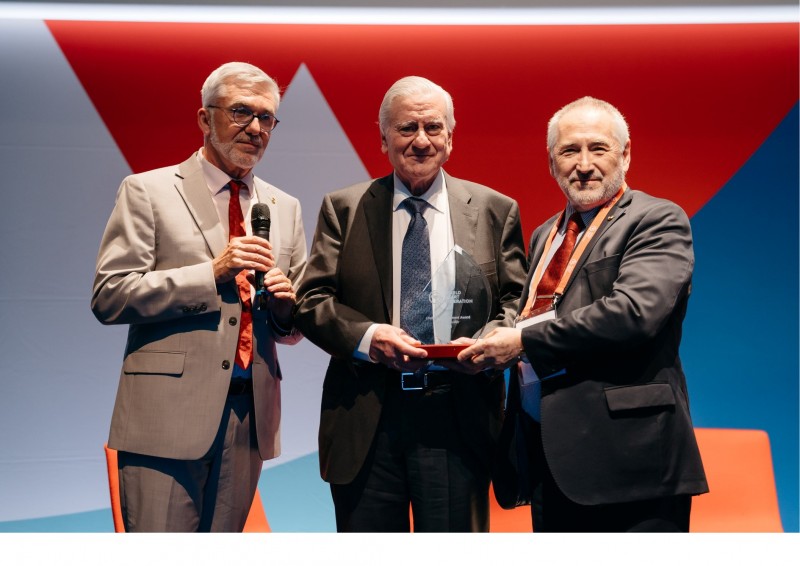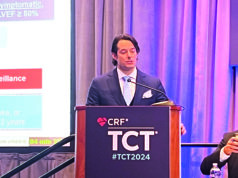
Valentin Fuster, president of Mount Sinai Heart and physician-in-chief of the Mount Sinai Hospital (New York, USA) has been honoured by the World Heart Federation (WHF) with its Lifetime Achievement Award for 2024.
In a press release, the organisation said that the honour recognises his contributions to the WHF mission, and to the entire cardiovascular disease community for his dedication to combating this disease worldwide.
The WHF presented Fuster with the award on Saturday, May 25, during the World Heart Summit in Geneva, Switzerland.
“I am proud of this award, particularly because it represents Mount Sinai’s worldwide scientific contributions and dedication to advancements in the cardiovascular field,” says Fuster.
Fuster was named director of the Cardiovascular Institute at Mount Sinai in 1994, became director of Mount Sinai Heart at its establishment in 2006, and held that position until the end of 2022. He built what is now known as Mount Sinai Fuster Heart Hospital into one of the world’s leading centres for cardiovascular care, cardiac surgery, and advanced research. Fuster is also general director of the Spanish National Center for Cardiovascular Research (CNIC).
Fuster also helped develop a cardiovascular “polypill”—a single pill that includes three medications typically taken separately—that is effective in preventing secondary adverse cardiovascular events in people who have previously had a heart attack.
His research into the origin of cardiovascular events, which has contributed to improved treatment of heart attack patients, was recognised in 1996 by the Prince of Asturias Award for Technical and Scientific Research.
In June 2011 he was awarded the Grand Prix Scientifique of the Institute of France for his translational research into atherothrombotic disease. Recently, he was named a Prince Mahidol Award Laureate in Thailand for his lifelong contribution to the field of medicine, and in 2022, the American College of Cardiology instituted the Valentin Fuster Award in Science and Innovation, which will be given to a single physician annually for the next 14 years.













